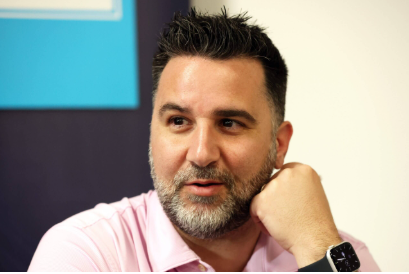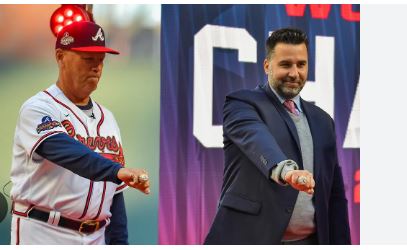With the 2025 season just over a month away, the Atlanta Braves are gearing up for another exciting campaign. However, fans were caught off guard by the team’s relatively quiet offseason, particularly regarding major league additions. While the signing of outfielder Jurickson Profar filled a crucial need, the bulk of their pitching acquisitions focused on adding depth rather than bolstering the rotation with top-tier talent.
Atlanta’s starting rotation will be missing Max Fried and Charlie Morton, at least initially. Spencer Strider is expected to return about a month into the season, and the team has internal candidates ready to step in temporarily. The bigger concern, however, is the bullpen. The Braves lost two key relievers A.J. Minter to the Mets and Joe Jiménez to a season-ending injury which explains their emphasis on adding depth pieces rather than making splashy signings.
This approach has led to growing speculation about the team’s financial strategy. Braves general manager Alex Anthopoulos addressed these concerns at spring training in North Port, Florida, where he revealed that the front office had explored a deal this offseason that would have pushed them over the luxury tax threshold for a third consecutive year. Though he declined to specify the nature of the deal, he insisted that financial constraints weren’t the issue. Instead, he cited long-term payroll flexibility and the importance of not blocking prospects from advancing as the primary reasons for being cautious with spending.
Currently, the Braves’ payroll sits at an estimated $230 million just under the first-tier luxury tax threshold of $241 million, according to FanGraphs’ Roster Resource. Despite Anthopoulos’ earlier statements that payroll would increase, it currently stands at approximately $212 million, down from $223 million on Opening Day 2024. If no additional moves are made, that projection will hold, raising questions about the organization’s true financial strategy.
Long-Term Outlook: Strategic Planning or Cause for Concern?
Anthopoulos’ remarks about being “selective” in roster decisions could signal future challenges for the franchise. With stars like Ronald Acuña Jr. and Ozzie Albies nearing free agency, the Braves will need financial flexibility to offer extensions. Additionally, the front office may be positioning itself for a more aggressive approach in next year’s free-agent market, particularly regarding pitching reinforcements.
For now, the Braves appear content to rely on internal options to fill gaps on the roster. While the organization boasts an impressive talent pool, the lack of external reinforcements has left some fans uneasy. To be fair, Anthopoulos does not have sole control over the team’s budget, as Atlanta Journal-Constitution’s Justin Toscano pointed out. However, the club’s long-term financial commitments already include significant contracts for core players like Austin Riley, Matt Olson, Sean Murphy, Michael Harris II, Strider, and Acuña.
Anthopoulos acknowledged the team’s spending limitations, stating: “We explored all kinds of things signings, trades, things like that. Our payroll is in the top 10, we have a lot of commitments already, and we’re going to be much more selective in the things that we do.”
While the Braves remain a championship contender, their conservative spending strategy suggests that financial flexibility is being prioritized over immediate roster upgrades. If the front office continues this cautious approach in future offseasons, it raises the question: Is Atlanta’s championship window beginning to narrow?





